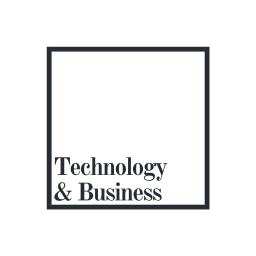A United Nations whistleblower fired last week for accusing the Office of the United Nations High Commissioner for Human Rights (OHCHR ) of providing the names of Chinese government opponents and activists who sought accreditation to participate in U.N. activities has called for an external investigation of the body. Emma Reilly, an employee at the OHCHR and a human rights lawyer, said that the sharing of the names of dissidents with the Chinese government has endangered their lives and their families. The OHCHR said it stopped the practice in 2015, although a 2017 press release stated that Chinese authorities in Geneva regularly asked the office to confirm whether certain people were attending Human Rights Council meetings. "The office never confirms this information until the accreditation process is formally under way, and until it is sure that there is no obvious security risk," it said. Reilly spoke to reporter Nuriman Abdurashid of RFA's Uyghur Service about her allegations and call for an independent investigation. The interview has been edited for length and clarity.
RFA: Why were you fired?
Reilly: I was fired for doing my job. … It was telling the truth to member states and in public that didn't work. It was telling people about the U.N. policy of handing names over to the Chinese government. The irony is that in court, the U.N.'s argument is that the policy is public. So, I've been fired for making public something that, when they're in front of a judge, the U.N. says is public.
RFA: Are these names given at China's request or does the U.N. take it upon itself to hand them over? How does it work?
Reilly: What happens is that the Chinese delegation sends an email about a couple of months before sessions of the Human Rights Council or other U.N. meetings. The Chinese delegation always talks about it as being a favor. They know they have absolutely no right to have this information, but they ask for this favor, and then the U.N. replies and does the favor. They ask about specific people. The number of people on the list varies sometimes. There are about 20 or 25 people. And then the U.N. will tell them that these people will be coming. Of course, they send Chinese police to their homes. They arrest them. They put their families in concentration camps. They disappear people. They torture people. And they have them phone their family members. Why on earth is the U.N. human rights office doing this?
RFA: How many names in total have been handed over to the Chinese?
Reilly: In total, I can't be 100% sure because the U.N. stopped copying me on the emails, handing them to China pretty quickly. But what I can see is that after they get them, China writes a letter to U.N. security saying, 'We don't want these people to come.' I know whose names have been handed over when I can access those letters, [which] are on a central database within the U.N. where you can see the communications between member states and the U.N. Not all of them are there. From the ones I have, it's somewhere between 50 and 70. But it's more than that. I don't know how many more.
RFA: Which names of Uyghurs were given to the Chinese? Was it only those who are about to present information to the Human Rights Council or those who have asked for assistance in finding information on their families in Xinjiang?
Reilly: I know that it's people who applied to attend the Human Rights Council [and] some of the treaty bodies. I have evidence that a few, [such as] the Committee on Economic Social and Cultural Rights, gave names to China the last time. I don't think it affects the working group on arbitrary detention, … which are the cases where people are most likely to be asking about specific family members. But I can't rule it out. That's why they need to investigate it, and people need to know for sure. People need to be able to confidently contact those bodies.
I've given people private email addresses of the members of those bodies when I've had them to stop them from going via the U.N. and to get to the members directly. … Frankly, nobody knows, apart from the people who are handing over names, and that's the problem. I knew that names for the Human Rights Council were handed over at least in 2020. I don't know if the fact that I've gone so public in 2021 means that it has stopped.
RFA: You've made it your life's work now to make the U.N. answer for this situation, so what kind of outcome do you expect?
Reilly: Nobody really pays attention to things they think they can hold tight, because that's what has tended to happen in whistleblower cases. But the difference is that other whistleblowers have been reporting individual acts of misconduct. This is the U.N. policy that everyone's going along with — that we make an exception for China because China wants this information and people want an easy life or money. I don't know why they're doing this. I don't think it will go away as easily as they think it might.
I certainly plan to take it to national jurisdiction. There's no point in taking court cases against the U.N. and the U.N. court. In my case, they fired a judge. He was about to rule in my favor and they literally told the judge not to come to work the next day. That's the kind of thing that really happens in a totalitarian society. That shouldn't be happening in the U.N...RFA
https://www.crimeandmoreworld.com/interview-china-wants-to-make-sure-that-the-uyghur-genocide-is-never-discussed/

No comments:
Post a Comment